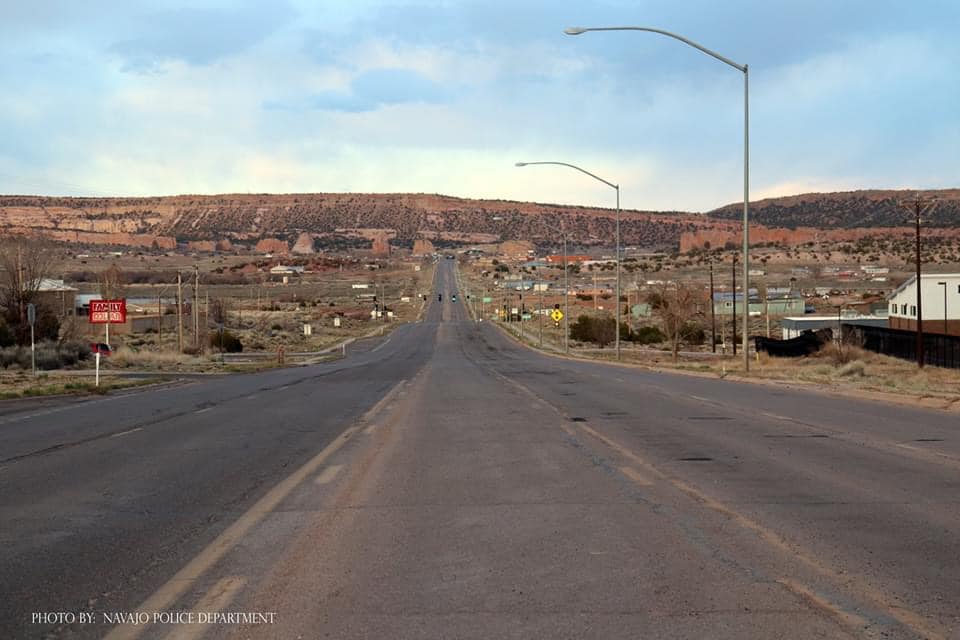
- Details
- By Levi Rickert
WINDOW ROCK, Ariz. — New information provided by the Navajo Nation on Friday night revealed the total number of COVID-19 deaths have been under reported. On Thursday, the COVID-19 related death toll stood at 167. After cross-referencing and reconciling, the number of deaths on the Navajo Nation, on Friday the the death toll rose dramatically to 231.
On Friday night, the Navajo Department of Health reported that on Thursday, May 28, the Navajo Epidemiology Center cross-referenced the number of deaths and reconciled their data with that of state partners. The process revealed 61 additional deaths.
Navajo Department of Health Executive Director Dr. Jill Jim stated that the Navajo Epidemiology Center continually tracks mortality data on a daily basis and verification often takes around two weeks to verify COVID-19 deaths with local and state health departments in all three states. The 61 COVID-19 deaths reported on Friday are a result of a delay in verification with the state mortality database. The 61 deaths did not occur in the past two days, but over a period of time that began in mid-March.
Also, on Friday, the Navajo Nation reported 1,796 recoveries, 101 new cases, and more deaths related to COVID-19 reported as 964 families receive food and supplies.
The total number of positive COVID-19 cases for the Navajo Nation has reached 5,145. Navajo Nation cases by Service Unit:
- Chinle Service Unit: 1,312
- Crownpoint Service Unit: 512
- Ft. Defiance Service Unit: 261
- Gallup Service Unit: 869
- Kayenta Service Unit: 786
- Shiprock Service Unit: 841
- Tuba City Service Unit: 433
- Winslow Service Unit: 100
*31 residences are not specific enough to place them accurately in a Service Unit
“During this weekend’s lockdown, let’s remain diligent and stay home and spend time with our loved ones. This week, we received data that shows the weekend lockdowns are working to decrease the number of hospital visits, emergency room visits, and we are also seeing a flattening of daily cases of the virus. We are fighting hard every day for our people, so please think of others and remain home and safe,” Navajo Nation President Jonathan Nez said on Friday.
The 57-hour weekend lockdown began on Friday, May 29, at 8:00 p.m. until Monday, June 1, at 5:00 a.m. This is the eighth weekend lockdown that also requires the closure of all businesses on the Navajo Nation.
_________________________________________________________________
To Donate to the Navajo Nation
The official webpage for donations to the Navajo Nation, which has further details on how to support the Nation’s Dikos Ntsaaígíí-19 (COVID-19) efforts is: http://www.nndoh.org/donate.html.
_________________________________________________________________
For More Information
For more information including reports, helpful prevention tips, and more resources, please visit the Navajo Department of Health’s COVID-19 website at http://www.ndoh.navajo-nsn.
For up to date information on impact the coronavirus pandemic is having in the United States and around the world go to: https://www.worldometers.info/coronavirus/country/us/?fbclid=IwAR1vxfcHfMBnmTFm6hBICQcdbV5aRnMimeP3hVYHdlxJtFWdKF80VV8iHgE
For up-to-date information about COVID-19, Native News Online encourages you to go to Indian Health Service’s COVID-19 webpage and review CDC’s COVID-19 webpage.
More Stories Like This
Native News Weekly (August 25, 2024): D.C. BriefsUS Presidents in Their Own Words Concerning American Indians
This Day in History – Dec. 26, 1862: 38 Dakota Men Executed by Order of Abraham Lincoln
Merry Christmas 2025
Navajo Man Faces Vehicular Homicide Charge After Child Killed at Navajo Nation Christmas Parade
Help us defend tribal sovereignty.
At Native News Online, our mission is rooted in telling the stories that strengthen sovereignty and uplift Indigenous voices — not just at year’s end, but every single day.
Because of your generosity last year, we were able to keep our reporters on the ground in tribal communities, at national gatherings and in the halls of Congress — covering the issues that matter most to Indian Country: sovereignty, culture, education, health and economic opportunity.
That support sustained us through a tough year in 2025. Now, as we look to the year ahead, we need your help right now to ensure warrior journalism remains strong — reporting that defends tribal sovereignty, amplifies Native truth, and holds power accountable.
 The stakes couldn't be higher. Your support keeps Native voices heard, Native stories told and Native sovereignty defended.
The stakes couldn't be higher. Your support keeps Native voices heard, Native stories told and Native sovereignty defended.
Stand with Warrior Journalism today.
Levi Rickert (Potawatomi), Editor & Publisher

